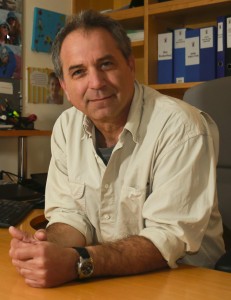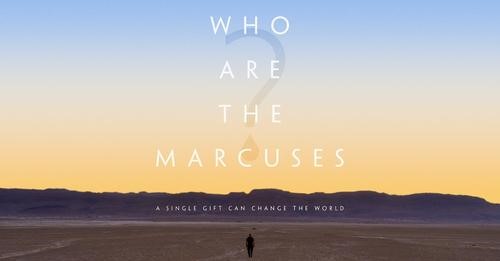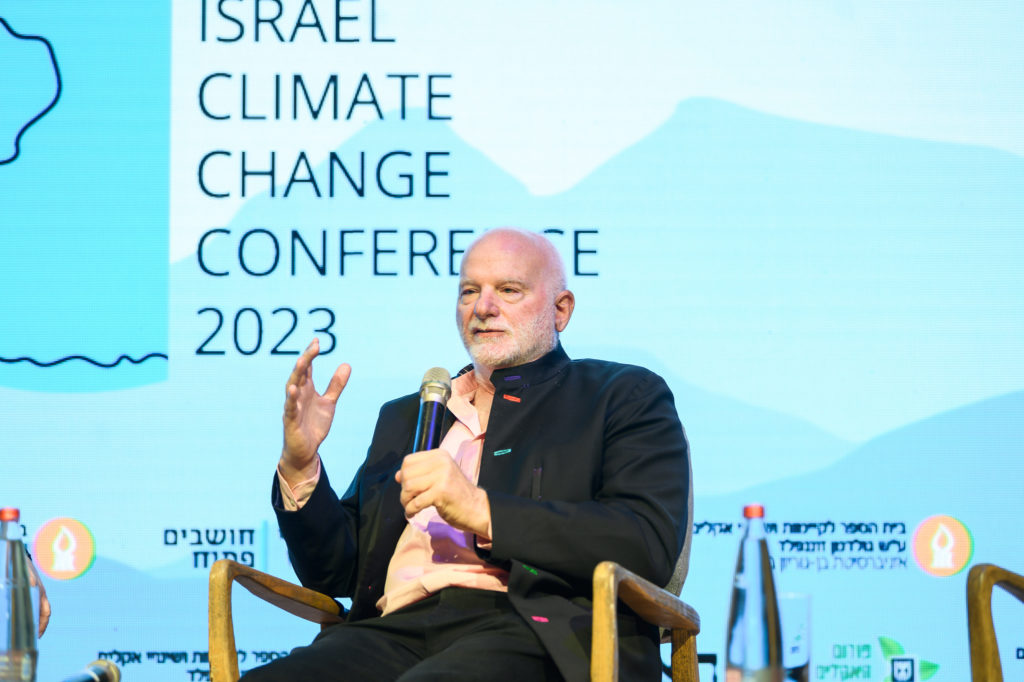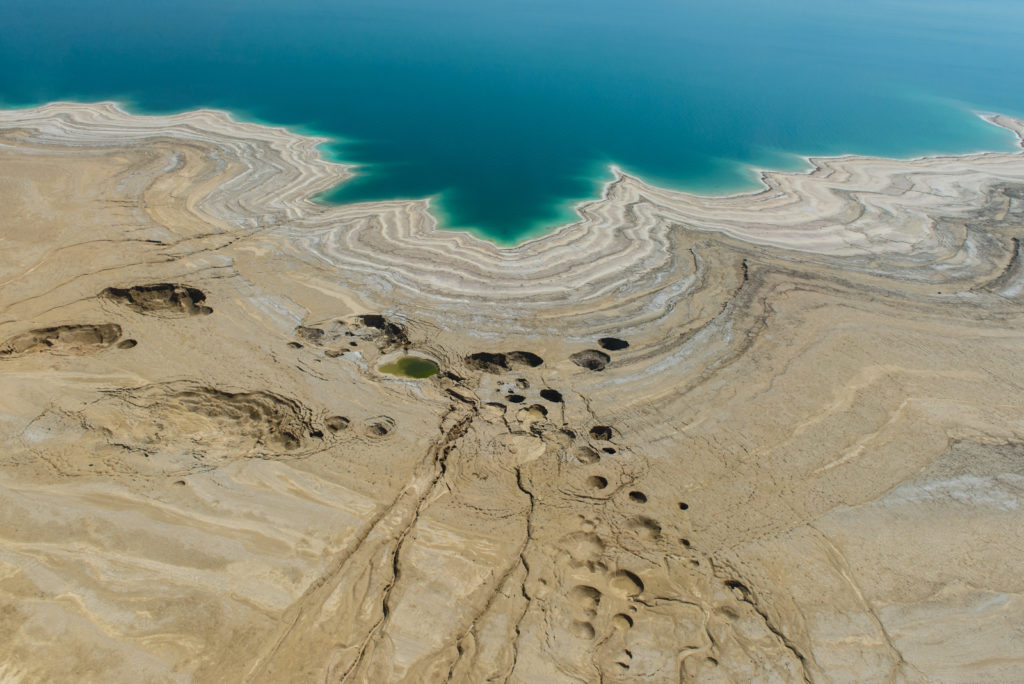
What Israel Can Teach the U.S. About Water
What Israel Can Teach the U.S. About Water
January 4, 2017
By Josh Kram, U.S. Chamber of Commerce
Senior Director, Turkey and Middle East Affairs
Executive Director, Middle East Commercial Center
Above the Fold — “We are approaching the end of the world,” Yair, my taxi driver, told me as we approached Sde Boker, a small town in Israel’s Negev Desert best known for being the retirement home and final resting place of David Ben-Gurion, Israel’s founding prime minister.
We had been driving two hours south from Tel Aviv through rocky desert punctuated by occasional gas stations and makeshift Bedouin villages. Ben-Gurion moved to this town of 500 people after leaving the premiership, himself inspired by the idea that the next generation of Israel’s pioneers could “make the desert bloom.” And to make anything bloom, of course, you need water.
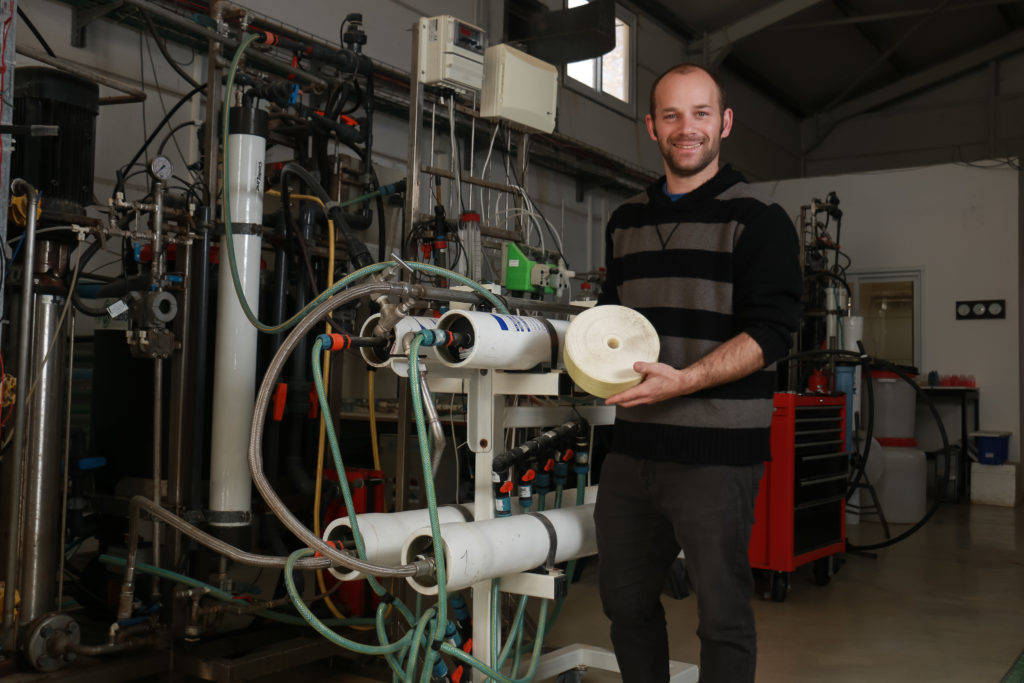
Photo above and below: Graduate and doctoral student researchers at the Zuckerberg Institute for Water Research
Since 67 percent of Israel is covered by desert, this was also a strategic imperative of a tiny country with a growing population. Israel has been a world leader in creative water use since the country was founded, mostly out of necessity.
Israel reclaims almost 90 percent of its water (compared to one percent in the U.S.); it is a pioneer in desalinating sea or brackish water (more than half of Israel’s drinking water comes from the Mediterranean Sea); it has pioneered highly innovative agricultural techniques like drip irrigation and smart soil; and it has a growing ecosystem of technology companies tinkering with world-class solutions to solve water challenges of water utilities, companies and farmers.
Sde Boker houses the country’s leading desert research institute, an outpost of Ben-Gurion University of the Negev. The study of water, of course, preoccupies this band of desert researchers. It’s an issue that Prof. Noam Weisbrod, the genial head of the University’s Zuckerberg Institute for Water Research said will have implications for all of humanity. From California to Cameroon, it’s not difficult to see how aging or non-existent water infrastructure and a growing demand for water are stretching these resources.
Prof. Weisbrod and his team of 21 faculty members, some 25 Ph.D. students and 50 graduate students, are working to push the boundaries of science and technology to ensure a water-safe future. This multidisciplinary team of hydrologists, geologists, chemists, biologists, and engineers are looking at water from the molecular — treating and re-mediating contaminated soil and groundwater (think Flint, Michigan) — to the macro – engineering efficient wastewater systems.
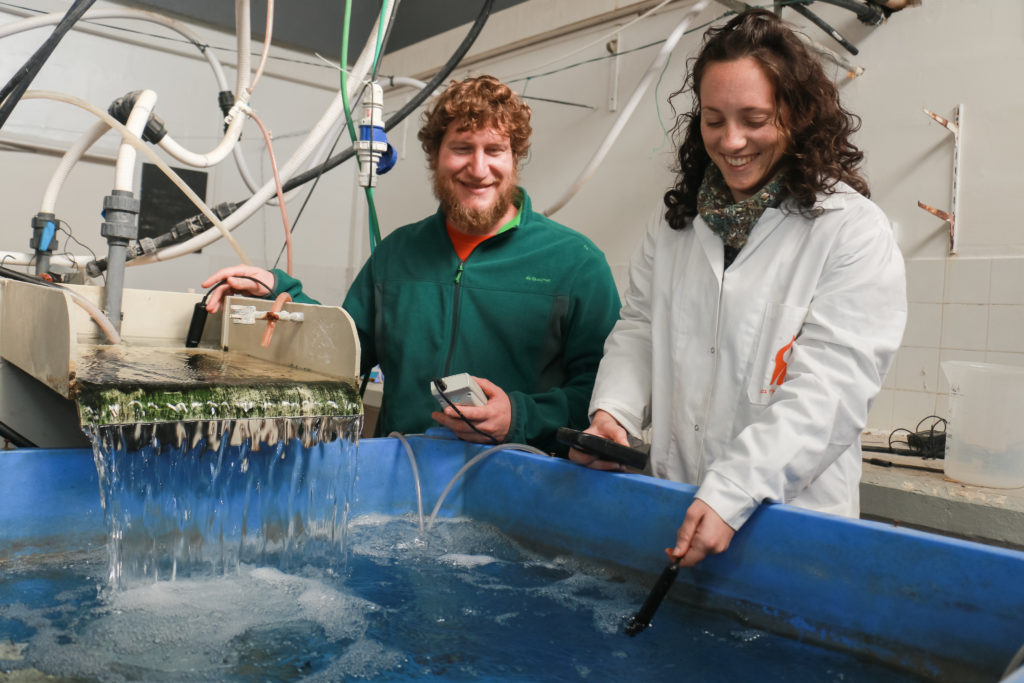
The Institute’s labs had all kinds of active experiments: testing new membranes and filters to turn seawater, brackish water and even wastewater into usable water; simulating river flow to see impacts on the land; developing a cost-effective process to extract the nitrogen from animal waste to create good fertilizer.
The Zuckerberg Institute’s work provides a window into how Israel leads the world in managing water — and why the global business community should care.
Water is a vital resource for business and a critical fuel for economic growth. From energy and minerals to manufacturing and agriculture, water is an essential ingredient to the food we eat and the products we use every day. However, as we’re seeing throughout the southwest United States, water supplies are strained. Groundwater basins are drying up, leading to an increased prevalence and intensity of drought.
According to research by Deloitte, without any significant change in how we manage water, demand will exceed supply by 40 percent by 2030 and the cost to close this gap could be as much as $60 billion a year for the next 20 years. An economic impact of this scale will affect our families, our local businesses and markets around the world. If left unresolved, costs stemming from water mismanagement could be seen in both our weekly grocery bill and the landscape of global geopolitics.
Understanding the important link between water and the strength of our economy propelled the U.S. Chamber of Commerce to host the first-of-its-kind summit bringing corporate executives, government leaders, entrepreneurs, and water experts [including Zuckerberg Institute faculty] together to discuss the importance of water stewardship and links between the U.S. and Israel to outpace the drought through innovation.
The U.S. and Israel are already a joint force in high-tech innovation. Over 350 global technology companies have R&D facilities in Israel.
Water innovation presents the next opportunity for U.S.-Israel commercial collaboration. Israel already has hundreds of start-up companies in the water sector that support U.S. industry in everything from leak detection to drip irrigation. At our summit, a water technology incubator supported by the State of Nevada called Waterstart signed a cooperative agreement with the Israeli Innovation Authority to promote greater collaboration in research and development, which will bring new projects to companies in both Nevada and Israel.
At the national level, Congress recently passed a signature piece of legislation to support new water infrastructure projects across the country and called on the Department of Interior to leverage the experience of Israel in developing these projects.
There is new realization that water is the new oil – a precious commodity and critical input into industrial life. Yet the relationship between the U.S. and Israel in this sector is in its infancy. There is tremendous untapped potential for greater collaboration to help ensure a sustainable water future not just for the U.S. and Israel, but to impact the use of water around the world.

